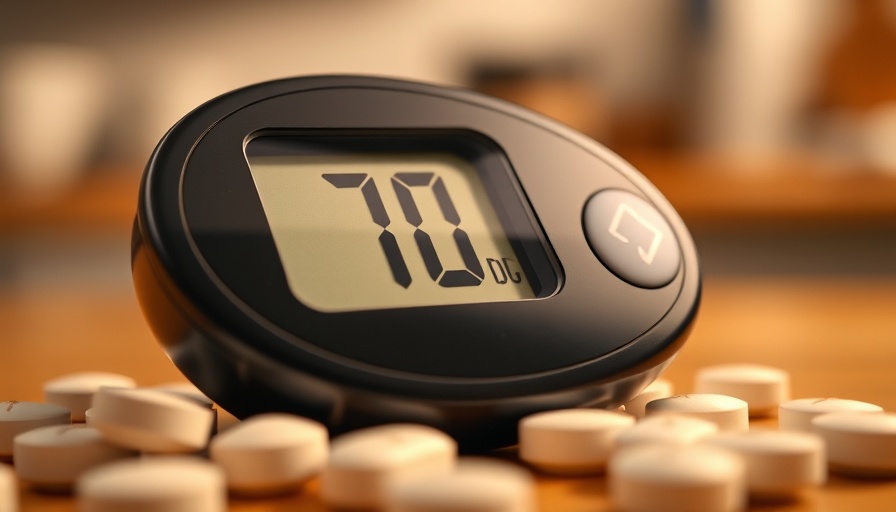
The Critical Symptoms of Diabetes: Know the Signs
Diabetes affects millions worldwide, and recognizing its symptoms is essential for early diagnosis and intervention. Key symptoms include frequent urination (polyuria), excessive thirst (polydipsia), and unexplained weight loss. These signs indicate that your body is struggling to regulate blood sugar levels. Understanding these markers not only empowers individuals to seek timely medical advice but also encourages better management of their health.
Understanding Diagnosis: Tests to Consider
If you suspect that you or a loved one may have diabetes, knowing how the condition is diagnosed is equally important. Diagnosing diabetes typically involves several tests, including the fasting blood sugar test and the Hemoglobin A1C test, which provides a snapshot of your average blood sugar over a few months. Understanding these tests can help demystify the process and lessen any anxieties surrounding your healthcare visit.
Statistics Highlight the Diabetes Epidemic
The prevalence of diabetes continues to rise, making awareness of symptoms and diagnostic procedures more crucial than ever. In the U.S. alone, it is estimated that nearly 1 in 10 adults live with diabetes. Such statistics underscore the importance of education and proactive management strategies to improve individual and public health.
Beyond Diagnosis: The Emotional Impact of Living with Diabetes
Beyond the physical symptoms, the emotional toll of living with diabetes can be profound. Many individuals report feelings of anxiety or depression regarding their health. It's crucial to take care of your mental wellness alongside managing diabetes. Joining support groups or talking to professionals can provide the emotional backing that complements your physical treatment.
Practical Tips for Diabetes Management
With knowledge comes the ability to make informed choices. Here are a few practical tips for managing diabetes effectively:
- Maintain a Balanced Diet: Focus on whole grains, lean proteins, and plenty of vegetables.
- Regular Monitoring: Track your blood sugar levels and understand how your body reacts to different foods and activities.
- Stay Active: Incorporate regular physical activity into your routine to help regulate blood sugar levels.
- Educate Yourself: Stay informed about the latest diabetes research and management strategies.
Taking Action: Your Next Steps
If you notice any symptoms associated with diabetes or have been diagnosed, it's essential to speak with your healthcare provider about your concerns. Early intervention can lead to better management and long-term health outcomes. Don’t hesitate to reach out for help and seek personal advice tailored to your situation. Remember, you're not alone on this journey.
 Add Row
Add Row  Add
Add 




Write A Comment